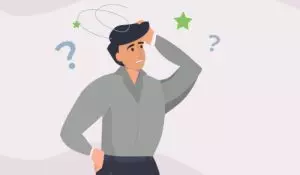I. TRANSCRIPT
Hi, I’m Liz Waid for Spotlight English. This week’s program is about the COVID pandemic and our stories during that pandemic – how the pandemic affected each of us and how people experienced that worldwide problem. This program was written before we knew very much about the Delta variant and other variants that are affecting populations all around the world. And while this program does have a hopeful ending – and I do think that we will get through this – we also want to acknowledge and let you know that we know there is still a lot of pain around COVID around the world. This is not a problem that is going away soon and it needs all of us working together to make it go away and to make it better. So we hope that when you listen to this program you hear about the experiences that people around the world have had. We want to hear about your experiences too. But we also want you to hear the hope that people do have for finally getting through this pandemic. We hope that you enjoy this program.
Voice 1
Welcome to Spotlight. I’m Liz Waid. Spotlight uses a special English method of broadcasting. It is easier for people to understand, no matter where in the world they live.
We begin today’s program with a story from March 2020.
Voice 2
“It was almost midnight. My roommate and I had been hanging out. It had been more than a week since we had left the house, because of the lockdown. So, we decided to go for a walk. No one was wearing masks, then. But there was also no one around. We walked to an intersection of streets. Normally, it would be crowded with people. Even on the weekdays, many people went to the bars. And a lot of cars travelled through. But there was no one. I remember I walked to the middle of the street. And then I lay down. I lay there for several minutes. No cars came. Nothing that night seemed real. Nothing seemed real for many nights after.”
Voice 1
This is a program about the COVID-19 pandemic of 2020. 2020 was unlike any other year. A new coronavirus named SARS-COV-2 spread through the whole world. It led to the disease COVID-19. And it changed everyone’s lives. Countries shut down. People had to make big changes to the way they worked, shopped, and had relationships. When the pandemic began, these changes seemed strange. But soon, the restrictions seemed normal. Today’s Spotlight is on the coronavirus pandemic. It is about how that first year felt. We tell stories from different people around the world. We look at their experiences during the first year of the COVID-19 pandemic.
Many people’s first experience was not with the virus itself. They first experienced measures designed to prevent the virus’ spread. Xiang Zhao is a researcher from Austria. But he is originally from China. He was visiting his family when COVID-19 began to spread. Zhao wrote about his experiences in the journal Health Communication. He wrote,
Voice 3
“Several apartments with infections were blocked by a thick metal bar on the door. This was an attempt to stop the virus from spreading. One night, I walked on a big bridge. I saw the new shopping mall I had not visited yet. I saw the restaurant where I had rice noodles last year. I saw the shop where I got a globe model when I was a child. All of these memories rushed into my head with the beautiful, but empty night view. A strong sense of isolation came over me. I felt extremely alone. I have no previous experience with such an outbreak. I was only a high school student when SARS happened. It did not affect my life very much.”
Voice 1
Loneliness was a common experience with the pandemic. Many people also experienced how terrible the loneliness could be. June Perry lives in the United States. Her father lived in a nursing home, where medical professionals would take care of him. COVID-19 was especially dangerous for older people. Someone in this nursing home caught COVID-19. The disease spread like a fire in a dry forest. And June was not able to see her father. She told NPR:
Voice 4
“We saw my father through the window. It was very, very sad. He had signs of dementia before he went to the nursing home. He did not know that people were dying around him. He did not know that three people near him had died of COVID. Six months after lockdown, he died alone, with nobody beside him.”
Voice 1
The isolation affected all people greatly. Most did not go out to work. They did not see their friends or family. It was like everything in the world had stopped. Several Italian scientists studied this feeling for the journal Frontiers in Psychology. They asked almost 3,000 students about their experiences. One, a 16-year-old, told the scientists:
Voice 5
“It is bad to wake up in the morning knowing that you cannot accomplish anything with your life. You cannot do anything. I look out the window, and it is all deserted. There are no more sounds of cars, buses, or people talking. It is like a changed world, like being in prison for something that you did not do. All I can do is wait and stay at home.”
Voice 1
When people caught COVID-19, they were not just afraid for themselves. Being infected meant people close to them could also be infected. This Coronavirus was a very new virus. Scientists did not know very much about it. People did not know how it would affect their loved ones. Angela Brangaccio had just given birth. Then doctors told her she was positive for COVID-19. She was afraid for herself, but she was also afraid for her child. She told to NPR,
Voice 6
“All I knew was that I had this three-month-old baby. I was so scared of anything happening to her. I felt so sick. I could not think how this virus would feel in a three-month-old body. The pain that you feel when you are sick: If my baby feels like this, I cannot go on.
In the end, I decided I would move into a different room. I did not spend much time with my baby. I could not kiss her. I kept my mask on all the time. It was so hard. I am not joking when I say it was the worst 14 days of my life.”
Voice 1
By the end of 2020, there seemed to be some hope. SARS-COV 2 had destroyed many lives. But countries were also developing vaccines for the virus. The vaccines would protect most people from getting seriously sick if they were infected. Scientists even believed that they might also prevent infection. By early 2021, some countries had vaccinated some of their population.
In many places COVID-19 cases began to fall. But there was still a lot to do to beat COVID. Many people still could not get the vaccines. But people began to think that there might be a life beyond the lockdown. They began to imagine a future where everyone could be safe again.
How did the COVID-19 pandemic affect you? Do you remember when you first heard of COVID-19? What was your experience like? Tell us your story. You can email us at contact@spotlightenglish.com. You can also find us on YouTube, Facebook, Instagram and Twitter.
The writer of this program was Dan Christmann. The producer was Liz Waid. The voices you heard were from the United States. All quotes were adapted for this program and voiced by Spotlight. You can listen to this program again, and read it, on the internet at www.spotlightenglish.com. This program is called, ‘Life and Loneliness During COVID-19’.
Visit our website to download our free official app for Android and Apple devices. We hope you can join us again for the next Spotlight program. Goodbye.


